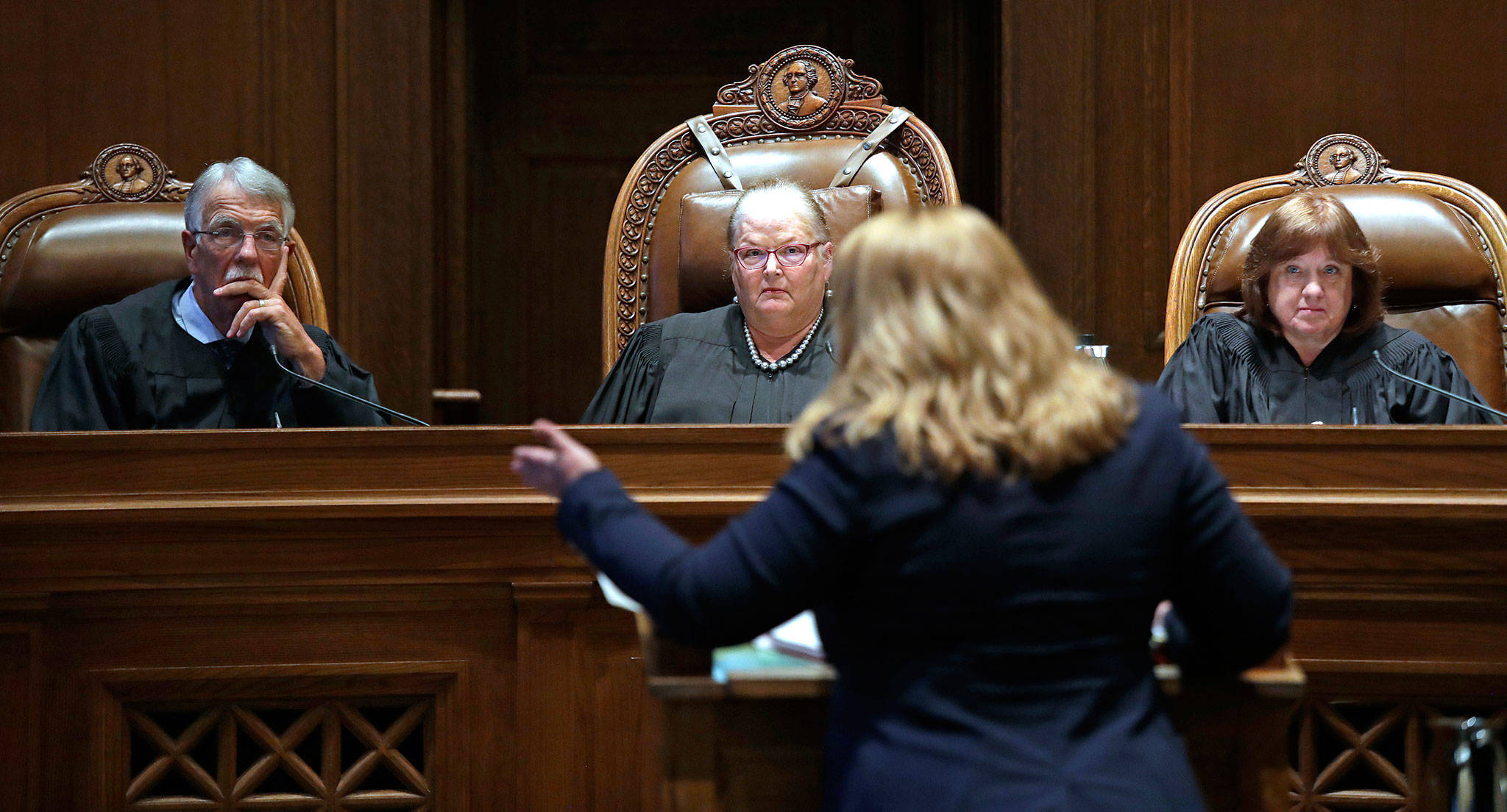By The Herald Editorial Board
It being all the rage right now, we’ll join in and quote the Founders:
“The people, in delegating authority, do not give their public servants the right to decide what is good for the people to know and what is not good for them to know. The people insist on remaining informed so that they may maintain control over the instruments that they have created.”
No, that’s not Madison, Jefferson or Adams. The founders quoted above were those Washington state voters who approved the language and provisions of Washington state’s Public Records Act in 1972 by a 72 percent majority.
On Thursday, the state Supreme Court, in a 7-2 decision, affirmed what Justice Susan Owens called in her majority opinion the “plain meaning” of the Public Records Act, that its requirements apply to individual members of the state Legislature, just as they apply to most every other government official and agency at the state and local level. The one exception the state Supreme Court has made regarding the Public Records Act is for the governor’s office, though Gov. Jay Inslee has made it policy to comply with requests.
The decision, upholding a January 2018 ruling by a Thurston County Superior Court judge, rejected the claims of state lawmakers that the public records act didn’t apply to them and they were, thus, not obligated to turn over to the public or press such documents as emails, text messages, daily schedules and other materials related to their work as legislators, including communications among legislators, with constituents and, most importantly, with lobbyists.
A coalition of news media, including the Associated Press and The Herald’s Sound Publishing, filed suit in late 2017, challenging the lawmakers’ refusal to respond to a records requests that sought emails, work calendars and written staff complaints involving alleged sexual harassment by lawmakers from each of the 147 legislators.
Rather than make preparations to comply with the 2018 ruling, state lawmakers appealed the decision, then later that summer, attempted to codify their refusal to follow the act by rushing a bill through House and Senate in less than 48 hours that — under the flimsy cover of a few concessions — would have largely exempted themselves from the act.
The Herald and many of the state’s daily newspapers, most of them plaintiffs in the original case, published front-page editorials criticizing the process and the proposed legislation. Readers responded with a flood of emails, phone calls and text messages to individual lawmakers and to Inslee, prompting him to veto the bill.
Several lawmakers from Snohomish County legislative districts who were contacted after Thursday’s decision said they were ready to respond to records request. Many notably were former public officials at the municipal level who had done so in those positions, including Sen. Marko Liias, D-Lynnwood; Rep. Carolyn Eslick, R-Sultan; Rep. Jared Mead, D-Mill Creek; and Rep. Cindy Ryu, D-Shoreline.
Still, the lawmakers’ 2018 attempt to exempt themselves from the act passed House and Senate with large majorities.
Lawmakers will now need to demonstrate their commitment to the Public Records Act by taking steps to timely respond when requests are made. Among those steps: hiring additional staff to handle requests; training all lawmakers, especially those without past municipal experience, in complying with the act; and making arrangements to release legislative reports, including investigations regarding misconduct by lawmakers or staff.
The last matter is important because Thursday’s victory for public records was not complete. A majority of the court also upheld the lower court’s ruling that the act does not apply to the House, Senate or the Legislature as individual institutions. The result means that requests for internal documents can’t be made generally to the House clerk or the Senate secretary, although those reports and documents should be available when requested from specific lawmakers.
Still, the state Supreme Court’s decision is one that can be celebrated by the state’s residents, especially among the more than 19,000 who called and wrote Inslee to veto the Legislature’s failed attempt to exempt itself from the act.
It’s a decision that has received notice among other states, including in Georgia where the Atlanta Journal-Constitution noted the Washington state ruling with some envy:
“Prevailing in such a case in Georgia is a trickier matter. The (Georgia) state Legislature has explicitly exempted itself from the state Open Records Act, even as that branch receives about $45 million in taxpayer funding a year and has the ability to regulate the health, taxes and professions of Georgians.”
Washington state, then, is fortunate on two counts: First, that the Public Records Act’s founders drafted clear and convincing language that won the approval of a significant majority of the state’s voters nearly 50 years ago. And second, that the state’s courts have at last honored the law’s “plain meaning” that the information that is produced for the benefit of the state’s residents — and through their tax dollars — belongs to the state’s residents.
Talk to us
> Give us your news tips.
> Send us a letter to the editor.
> More Herald contact information.

























